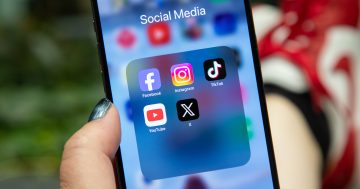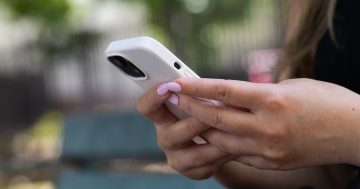Marc Bain* says new research suggests limiting social media use to 30 minutes a day will help you feel less depressed and lonely.

Photo: Isabell Winter
A number of studies have by now correlated social media use with mental health risks, such as loneliness and depression.
But correlation isn’t causation, leaving a bit of a chicken-and-egg problem: is social media actually behind these issues, or are people who are already depressed and lonely just more likely to spend time on social media?
A new study being published in December’s Journal of Social and Clinical Psychology by researchers at the University of Pennsylvania has tried to look into the causal side of things and see whether people may actually feel better when they cut down on social media.
Its conclusion: “Our findings strongly suggest that limiting social media use to approximately 30 minutes per day may lead to significant improvement in wellbeing,” the authors write.
The group, led by Melissa G. Hunt, Associate Director of Clinical Training at the University, could find only two previous studies that experimentally tested the cause-and-effect relationship between social media and mental health issues.
Both focused only on Facebook and left plenty of room for further research.
So the researchers recruited 143 undergraduate students for two different trials, one in the spring and one in the autumn.
Each subject had to have a Facebook, Instagram, and Snapchat account, plus an iPhone.
(They note that iPhones “automatically track the total minutes each application is actively open on the screen.”)
They monitored the students for a week to get a baseline reading of their social media use and gave them questionnaires that assessed their wellbeing according to seven different factors: social support, fear of missing out (aka FOMO), loneliness, autonomy and self-acceptance (a measure of psychological wellbeing), anxiety, depression, and self-esteem.
Next, they ran their experiment.
For the next three weeks, one randomly assigned group would keep using social media as it always did, and the other had to limit its use of Facebook, Instagram, and Snapchat to 10 minutes, per platform, per day.
“Here’s the bottom line,” Hunt told Science Daily.
“Using less social media than you normally would leads to significant decreases in both depression and loneliness.”
“These effects are particularly pronounced for folks who were more depressed when they came into the study.”
The researchers chose to limit social media, rather than have subjects stop using it altogether, because it was a more realistic option, she noted.
Few people are likely to cut these platforms out entirely, but you can easily cut back on how much you use them.
As for the other measures, the researchers found that both groups saw their rates of anxiety and FOMO fall, possibly because just by being in the study, the students were much more aware of how much time they were spending on social media.
Neither group showed any improvement in social support, self-esteem, or autonomy and self-acceptance.
The researchers note that it’s possible these measures really aren’t affected by social media, but also that the length and design of the trial may not have been right to see real outcomes.
The study does have its limits.
The researchers could only monitor what students did on their phones, meaning they could sneak in time on their desktops.
Some students went over their limits, and the study didn’t account for other platforms like Twitter.
There’s also room to try different limits, for different lengths of time.
“As our study was the first of its nature, there are many opportunities for further investigation,” the authors state.
* Marc Bain is fashion reporter for Quartz. He tweets at @marcbain_.
This article first appeared at qz.com.










